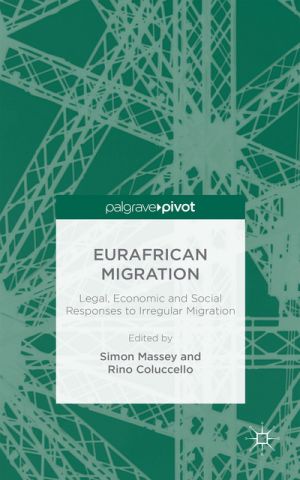
Informed by witness testimonies, Eurafrican Migration details how the perilous journeys undertaken by irregular migrants are enabled by complex networks of guides during the Sahara phase, and explores the relationship between migrants and the criminal groups who arrange for them to be transported across the sea to southern Europe.
This book documents the realities of life for migrants on arrival, questioning the authenticity of the supposed 'consent' given by Nigerian women working as prostitutes, investigating the exploitation of migrants by local companies and individuals in various economic sectors in Italy, and exploring the marginal position of migrants in an economically devastated Greece.
Finally, in the context of the spike in seaborne migration and fatal capsizes in early 2015, the response of the EU and individual member states is evaluated, notably the record of the policies of deterrence and securitisation (often described as Fortress Europe) adopted by Malta, France, Greece and Italy.